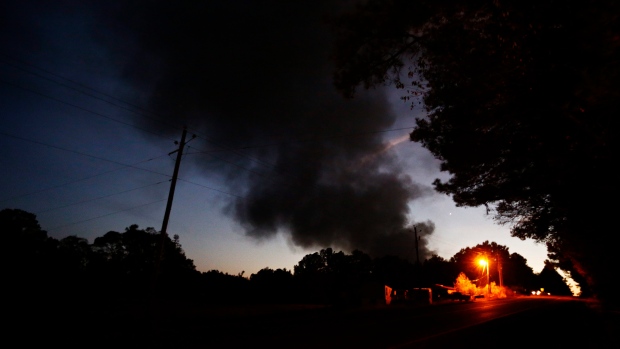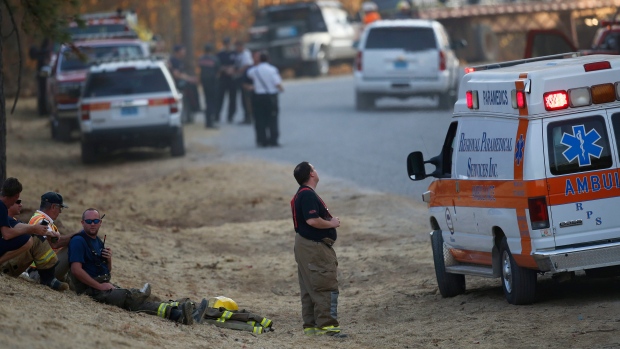Nov 1, 2016
Gas prices and pipeline proponents vulnerable after fatal Alabama blast

Pipeline proponents have just been dealt another deadly, explosive setback.
Colonial Pipeline Co. was forced to shut down its main gasoline artery to the east coast of the United States late Monday after a maintenance crew in Alabama accidentally hit the line with a trackhoe, creating a spark that set off a massive explosion. One worker died at the scene and five more were taken to Birmingham-area hospitals with severe burns.
Colonial Pipeline said on Tuesday afternoon its Line 2 has resumed operations as of midnight. The company also said its schedules are being updated to reflect a Saturday noon restart for Line 1, its main gasoline line, adding that this projection could be changed.
The short-term economic implications of the incident are no doubt dramatic: the line is responsible for suppling one third of the 3.2 million barrels of gasoline consumed daily on the U.S. east coast and prices at the pump are already starting to spike as a result, not to even mention the double-digit per cent growth of gasoline futures prices.
In Canada, drivers specifically in Ontario and Quebec could be paying an extra four cents per litre or more as soon as Thursday directly as a result of the Colonial shutdown, according to GasBuddy.com senior petroleum analyst Dan McTeague.
It is, however, the cultural implications of this latest shocking reminder of how sensitive critical infrastructure networks can be that will surely have the most lasting impact. One fact alone is likely to embolden opponents: more than 8,000 barrels of gasoline leaked from the same Colonial pipeline in early September less than a mile from the source of Monday’s explosion.
As thousands remain encamped in and around Cannon Ball, North Dakota in hopes of blocking the US$3.7-billion Dakota Access pipeline – partially owned by Enbridge – this is precisely the scenario the protests are trying to avoid. Not only is the land considered sacred by the Standing Rock Sioux tribe, but opponents to the Energy Transfer Partners project also fervently believe the risk of an environmentally damaging spill, or even a physically damaging explosion, is simply too great.
Crude oil – which is what the Dakota Access pipeline would carry if built – is generally far less flammable than refined gasoline. Although crude oil produced from North Dakota carries an especially high risk of catching fire. The crude that ignited the town centre of Lac-Mégantic, Quebec in July 2013 was from the North Dakota Bakken region.

“Unfortunately, human error on repairs and pipeline explosions do happen,” Dan Tsubouchi, chief market strategist for Calgary-based Stream Asset Financial Management, explained to BNN via email, citing an Oct.17 chemical plant explosion in Germany caused by a pipeline that exploded while being repaired as just the most recent example.
No activity is without risk and that is especially true of pipelines. For all the focus every single major pipeline operator places on safety before all else, none is able to realistically boast of a 100 per cent safety record; even if many claim figures north of 99 per cent.
That is not enough to satisfy opponents and, in the case of Standing Rock, efforts to disperse the protestors has only served to embolden them. Police donned full riot gear and deployed pepper spray, sound cannons and even bean bag guns against what have been largely peaceful gatherings and instead of shutting opponents down, more than one million Facebook users checked in to the area over just the past day both to show solidarity with the cause and to prevent authorities from using the social media service to identify new targets.
Even without unanimous support from the Standing Rock Sioux tribe itself, the pipeline resistance continues to mount. Every time an incident like the one on Monday in Alabama occurs – and there will undoubtedly be more – pipeline opposition will only continue to expand.



